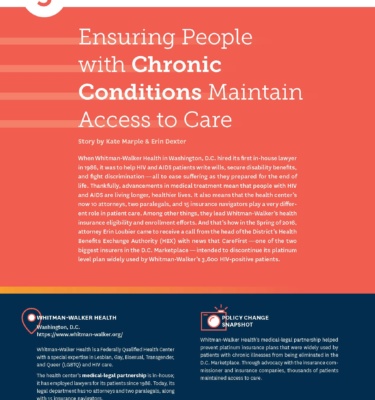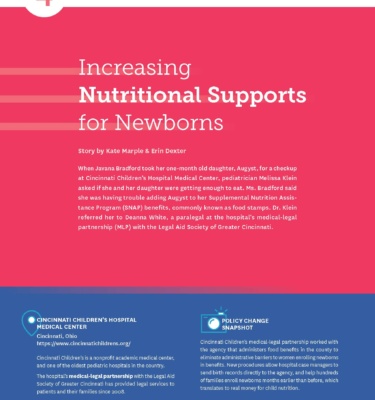Tuesday, June 26, 2018
Families living in poverty face many stressors created and maintained by economic hardship and unaddressed legal and social needs. As medical-legal partnerships aim to address and solve unmet legal and social needs, this pilot study at Rutgers examines whether MLP-involved parents perceived themselves as stressed, to what they attributed their stress, and whether they reported a reduction in stress when their legal cases were closed. The study shows that, following a medical-legal partnership intervention, parents had improvements in perceived stress....Read More
Thursday, May 3, 2018
National surveys of homeless veterans have been conducted for over a decade, but there has been no examination of changes in the needs of homeless veterans. This article looks at data from the U.S. Department of Veterans Affairs' 2012, 2014, and 2016 CHALENG surveys to see how homeless veterans’ most pressing needs have changed over the last several years....Read More
Wednesday, May 2, 2018
Whitman-Walker Health's medical-legal partnership helped prevent platinum insurance plans that were widely used by patients with chronic illnesses from being eliminated in the D.C. Marketplace. Through advocacy with the insurance commissioner and insurance companies, thousands of patients maintained access to care....Read More
Wednesday, April 25, 2018
When Javana Bradford took her one-month old daughter, Augyst, for a checkup at Cincinnati Children’s Hospital Medical Center, pediatrician Melissa Klein asked if she and her daughter were getting enough to eat. Ms. Bradford said she was having trouble adding Augyst to her Supplemental Nutrition Assistance Program (SNAP) benefits, commonly known as food stamps. Dr. Klein referred her to Deanna White, a paralegal at the hospital’s medical-legal partnership with the Legal Aid Society of Greater Cincinnati. That referral led to policy changes that helped hundreds of families enroll newborns months earlier than before, which translates to real money for child nutrition....Read More


